A trust protector is a valuable safeguard in modern estate planning. If you’ve established a revocable or irrevocable trust to manage your assets, a trust protector adds an extra layer of security to ensure your wishes are carried out as intended. But what exactly is a trust protector, and how can this role help protect your financial legacy?
In this blog post, we’ll cover:
✔️ What a trust protector does.
✔️ Why you should consider appointing one
✔️ How trust protectors work with trustees
✔️ How to include a trust protector in your estate plan
✔️ Relevant laws and resources for trust administration
What Is a Trust Protector?
A trust protector is an independent third party appointed to oversee and safeguard a trust. Their job is to ensure the trustee follows the grantor’s instructions and manages the trust in the best interest of the beneficiaries.
Trust protectors are often used in:
🔹 Irrevocable trusts, where the grantor gives up direct control.
🔹 Special needs trusts, where vulnerable beneficiaries need extra protection
🔹 Dynasty trusts, which may last for generations
Unlike trustees, trust protectors do not manage daily trust administration. Instead, they have specific oversight powers that help prevent abuse, mismanagement, or legal issues.
What Can a Trust Protector Do?
The role of a trust protector varies depending on how the trust document is written. Common powers include:
- Removing and Replacing Trustees
If a trustee is not fulfilling their duties—or is acting against the trust’s best interests—a trust protector can remove and replace them. This is particularly helpful if:
✔️ The trustee becomes incapacitated or passes away
✔️ The trustee is mismanaging funds
✔️ The beneficiaries and trustee are in conflict
Read about how a trust protector can help prevent financial abuse here.
🔗 More on Trustee Responsibilities: American Bar Association – Trustee Duties
- Amending the Trust for Legal or Tax Changes
Estate laws and tax regulations change over time. A trust protector may be granted the power to modify the trust to:
✔️ Keep it compliant with new tax laws
✔️ Protect assets from unintended liabilities
✔️ Adjust provisions to benefit heirs
🔗 Read: IRS Estate and Gift Tax Guidelines (IRS.gov)
- Mediating Conflicts Between Trustees and Beneficiaries
Disputes between trustees and beneficiaries are common in estate management. A trust protector can act as a neutral party to resolve disagreements before they lead to expensive legal battles.
🔗 Trust Dispute Resolution: National Center for State Courts
- Adjusting Beneficiary Distributions
Sometimes, a trust protector can adjust distributions to ensure beneficiaries receive funds at the right time. This is particularly useful if:
✔️ A beneficiary has special needs
✔️ A beneficiary faces financial difficulties (like bankruptcy)
✔️ A beneficiary struggles with addiction
🔗 Learn About Special Needs Trusts: Special Needs Alliance
- Approving or Blocking Major Transactions
Trust protectors can oversee high-value transactions, such as: ✔️ Selling trust-owned real estate
✔️ Investing large sums of money
✔️ Distributing significant assets to beneficiaries
This ensures that the trustee is making financially sound decisions that align with the grantor’s original intent.
Trust Protector vs. Trustee: What’s the Difference?
It’s important to understand how a trust protector differs from a trustee.
Feature | Trustee | Trust Protector |
Manages Trust Assets | ✅ Yes | ❌ No |
Makes Investment Decisions | ✅ Yes | ❌ No |
Oversees Trustee’s Actions | ❌ No | ✅ Yes |
Can Remove Trustee | ❌ No | ✅ Yes |
Modifies Trust Terms | ❌ No | ✅ Yes (if permitted) |
Essentially, a trust protector provides oversight and accountability without taking on the daily administrative burdens of a trustee.
Who Should Be Your Trust Protector?
A trust protector should be a neutral, knowledgeable, and reliable individual or institution. Common choices include:
✔️ Licensed Professional Fiduciary – Ensures compliance and ethical management (National Guardianship Association)
✔️ Estate Planning Attorney – Offers legal oversight and trust modification guidance
✔️ Certified Public Accountant (CPA) – Monitors financial management and tax compliance
✔️ Trust Companies or Financial Institutions – Provide professional trust administration
✔️
🔗 Choosing the Right Fiduciary: American College of Trust and Estate Counsel
How to Add a Trust Protector to Your Estate Plan
If you already have a revocable or irrevocable trust, you can amend it to include a trust protector. Here’s how:
1️. Consult an estate planning attorney – They will draft the necessary provisions and define the trust protector’s powers.
2️. Choose a qualified trust protector – Select someone neutral and financially knowledgeable.
3. Specify their powers—Clearly outline in the trust agreement what the trust protector can and cannot do.
4️⃣ Review and update regularly – Make sure the trust protector’s role remains relevant as laws and family circumstances change.
🔗 Find Laurel Loomer’s bio here: National Academy of Elder Law Attorneys
Final Thoughts: Why a Trust Protector Is Essential
A trust protector adds flexibility and security to any estate plan. Without one, your trust may lack oversight, leaving assets vulnerable to mismanagement, legal conflicts, and changing tax laws.
✅ Protect your legacy by appointing a trust protector today!
📩 Need estate planning guidance? Contact an experienced trust and estate attorney to ensure your trust is legally sound and well-protected.
🔗 Resources for Trust Planning:
- Fiduciary Duties in Trusts – American Bar Association
- Understanding Revocable vs. Irrevocable Trusts – EstatePlanning.com
- IRS Tax Considerations for Trusts – Internal Revenue Service


